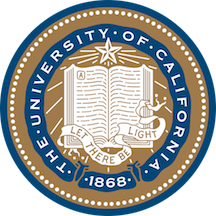 Two years ago, there was a major increase in the number of Black students admitted to the nine undergraduate campuses of the University of California. In 2016, the total number of Black first-year students from California admitted to one or more undergraduate campuses of the University of California increased to 3,464 from 2,653 in 2015. This was a major increase of more than 30 percent.
Two years ago, there was a major increase in the number of Black students admitted to the nine undergraduate campuses of the University of California. In 2016, the total number of Black first-year students from California admitted to one or more undergraduate campuses of the University of California increased to 3,464 from 2,653 in 2015. This was a major increase of more than 30 percent.
In 2017, the University of California reported no significant progress in the number of admitted Black students. That year, there are 3,467 Black students who were admitted to one or more of the undergraduate campuses, just three more than the previous year. Blacks made up 5 percent of all admitted students.
Once again, this year, there has been no further progress. A total of 3,452 Black students were admitted to at least one of the nine undergraduate campuses. This is 15 fewer than last year. Blacks continue to be 5 percent of all admitted students.
At the flagship University of California, Berkeley campus, the number of Black admits dropped from 401 in 2016 to 375 last year. This year, the number of Black admits at Berkeley increased by five to 380. Blacks are 4 percent of all students admitted to the Berkeley campus.
At the prestigious campus of the University of California, Los Angeles, Black admits dropped from 624 in 2016 to 571 in 2017 to 528 this year. But overall admits dropped from 10,413 to 8,730 this year. Blacks have held steady at 6 percent of all admitted students during the period.
The undergraduate campuses at Davis and Irvine have more Black admits this year than in 2017. But the campuses at Merced, Riverside, San Diego, Santa Barbara, and Santa Cruz showed declines.


I know this sound bad but I am not sure this is poor performance. In looking at college age people in California black students only make up 6-6.8 percent of the population depending on what website you look at so to be a 5 percent in a state without affirmative action seem pretty good to me. You compare this to the University of Georgia which also does not have affirmative action yet about 8 percent of the recent freshman class was black in a state where over 30 percent of the population is black. Do you have any studies on the difference in impact on affirmative action in different states.
Great point. The fixation on getting the exact representation of blacks in colleges is getting ridiculous. Quibbling over the fact that blacks make up 4% of a Cali college when blacks only make up 6% of the state pop. is obsessive.
Another thing about Cali is that there are no HBCUs. I know at Howard for example there’s a strong Cali continent. So some black students might actually choose to leave the state, imagine that blacks exercising agency.